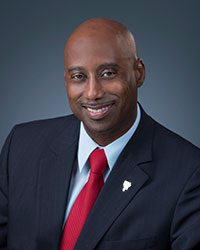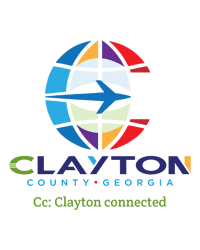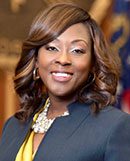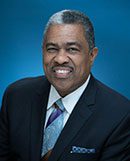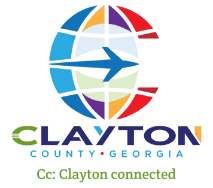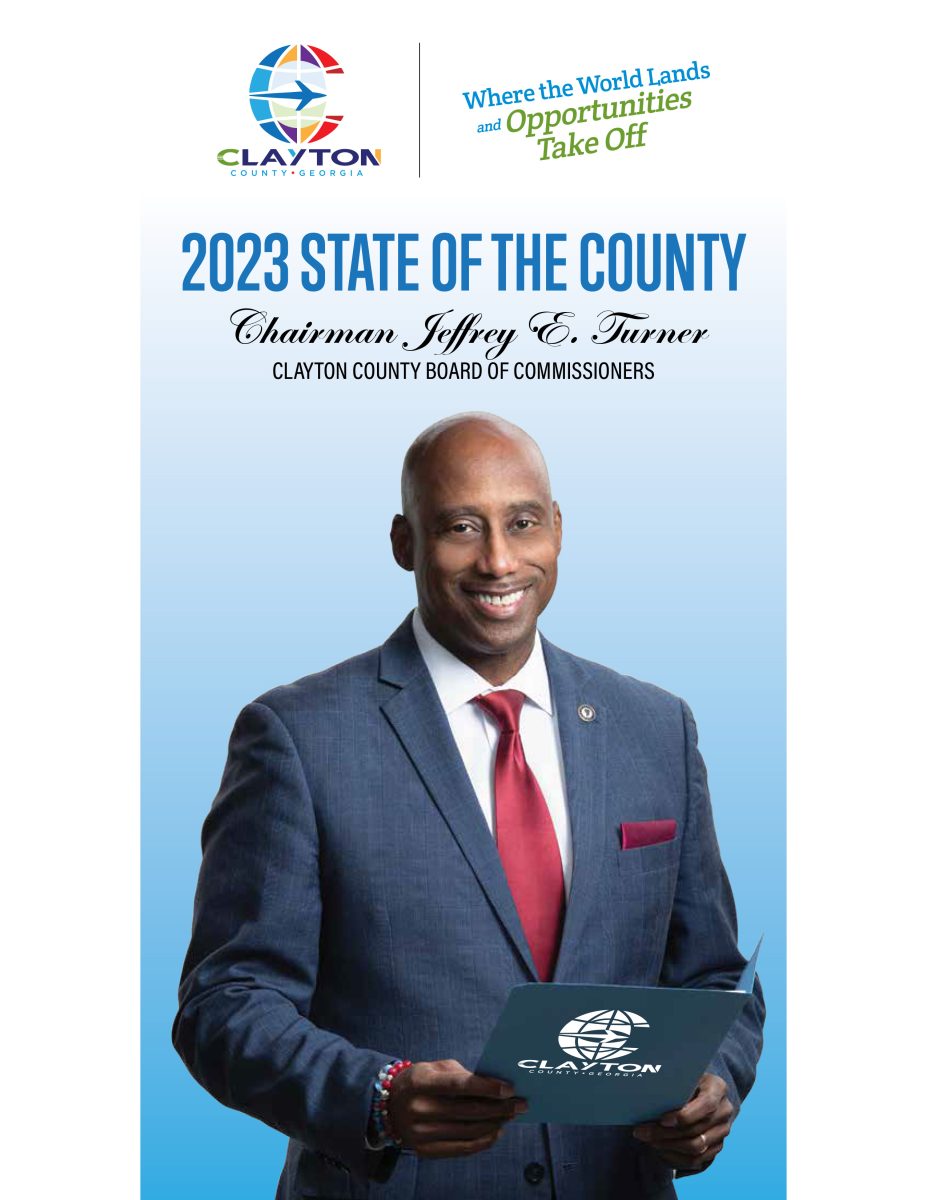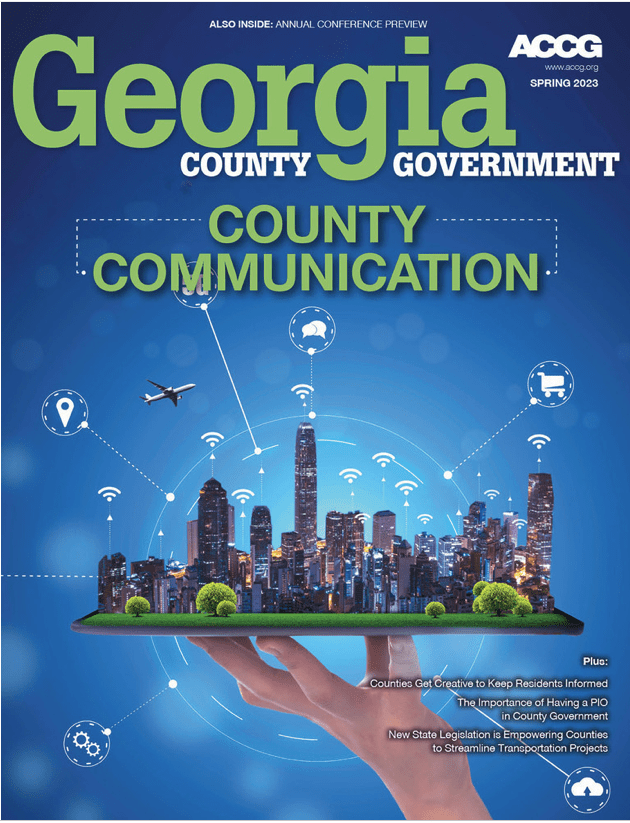Most county leaders would agree that strong outreach and communication with citizens is essential. Without public awareness and support for government functions and priorities, progress can’t be made. At the same time, today’s county communications teams have one of the most formidable tasks in government: reaching a population short on time, already awash in information, and with needs as diverse as its demographics. To touch modern constituents of all ages and cultural backgrounds, communication can’t come in one form or happen in one place. It must be where citizens are—which is everywhere. Compounding these challenges, communications departments are seldom among the top-funded or largest-staffed departments within county government, but counties’ success hinges on them.
Daunting? Yes. Impossible? No. Four Georgia counties—Macon-Bibb, Walker, Lowndes, and Clayton—show that county communication that leverages creative thinking and modern tools can be more effective, engaging, and far-reaching than ever. They share their best-practice, low-cost approaches for staying on top of trends and keeping communities connected.
VIDEO: SHOWING AND TELLING YOUR COUNTY’S STORIES
One of Macon-Bibb County Government’s latest videos starts with a heavy steel door swinging open and a friendly figure in uniform greeting the camera. His opening line strikes a familiar chord: “I’m Training Chief Ron Smith. Welcome to my crib.”
What follows is a five-minute whirl around the consolidated government’s new fire training academy, a $3.2 million, 10,000-square-foot facility that opened in January 2023. The video is the latest in a series called MBC Cribs—Macon-Bibb’s tongue-in-cheek riff on the long-airing celebrity home tour TV show, MTV Cribs. The latter opens with a musician, actor, or athlete inviting viewers into their mansion and uttering the famous line, “Welcome to my crib.”
Throughout the video, which was posted to Macon-Bibb’s website, Vimeo channel, and social media pages, Chief Smith walks viewers through some of the most interesting facts and facets of the facility, including burn rooms that withstand temperatures up to 1,000 degrees, confined space simulators, and a fleet of fire engines. Edgy beats, action scenes, and shots filmed with drones and helmet-mounted cameras keep viewers’ interest by making the video equally as entertaining as the other viral videos vying for their attention—even as it educates.
The clicks, views, and shares that videos like this generate matter. Nearly all of the construction costs for the training center were funded by the Special Purpose Local Option Sales Tax (SPLOST), which citizens vote to approve. Videos like those in the MBC Cribs series highlight community assets and help ensure broad support for continued county investments.
In the same vein, counties are taking advantage of video as a visual medium for sharing bite-sized news. Northwest Georgia’s Walker County publishes a monthly video called Walker 180—the “180” referring to the fact that the videos are often just 180 seconds, or three minutes long. Though they take only a fraction of a citizen’s time to watch, these videos are a one-stop shop for information about all the latest developments across the county. Walker County Public Relations Director Joe Legge, who hosts the series and shares five or six feature stories in each monthly video, is a former TV news anchor and knows how to share headlines in short segments.
“Watching these videos is an easy investment in being an informed citizen,” says Legge. “Instead of attending every commission meeting or reading lots of press releases, our residents can stay educated and in the loop by spending just three minutes a month.”
Providing a big payoff for a small investment on the part of citizens is key to Walker County’s communications strategy. Some residents have the time and interest to attend multi-week citizen academies to learn the ins and outs of their local government. But leaders like Legge know it’s important to make county operations transparent and accessible to all—not just those who can commit to this level of involvement. Hence, in another Walker County Government video series, called How Walker Works, Legge and his team share information about each aspect of the county government. The two-minute videos shine a light on the structure and activities of the probate court, planning department, local landfill, and more. Along the way, the videos answer citizen FAQs, such as how to get property rezoned or obtain a marriage license. The series is as informative as a citizen academy, but it’s online and available 24/7.
Lowndes County uses video to recognize departments’ good work, share public service announcements, and provide a peek behind the curtain on projects in progress, including the current rehabilitation and restoration of its historic courthouse. The county has also found that videos offering a behind-the-scenes look at the experience of working in various county jobs help boost job listings and tell a much stronger story than a typical “now hiring” post. For Lowndes, video is becoming an increasingly impactful medium. “Videos are well worth the investment for any county in this state,” says Meghan Barwick, Lowndes County Public Information Officer.
A county government’s presence in video need not stop at streaming platforms like YouTube and Vimeo. Macon-Bibb County branched out to the short-form video platform TikTok, beloved among Gen Zers, in 2021. The county leverages it to reach younger residents, including teenagers and people in their early 20s, with entertaining county news updates. Its most popular video, featuring Macon-Bibb Mayor Lester Miller celebrating a community anniversary with schoolchildren, has garnered nearly 12,000 views. Commented one young resident on a recent post, “It fills me with such joy that Macon-Bibb Government has a TikTok.”
With proven success as an engaging format of content for all ages, videos are among the most effective outreach tools for counties. Videos dominate many platforms where citizens are spending hours per day connecting with family, friends, news, and culture. County communications pros with their finger on the pulse of the evolving algorithms of popular social media sites, which are increasingly promoting video content in users’ feeds, know that video is here to stay—and is an important vehicle for reaching residents.
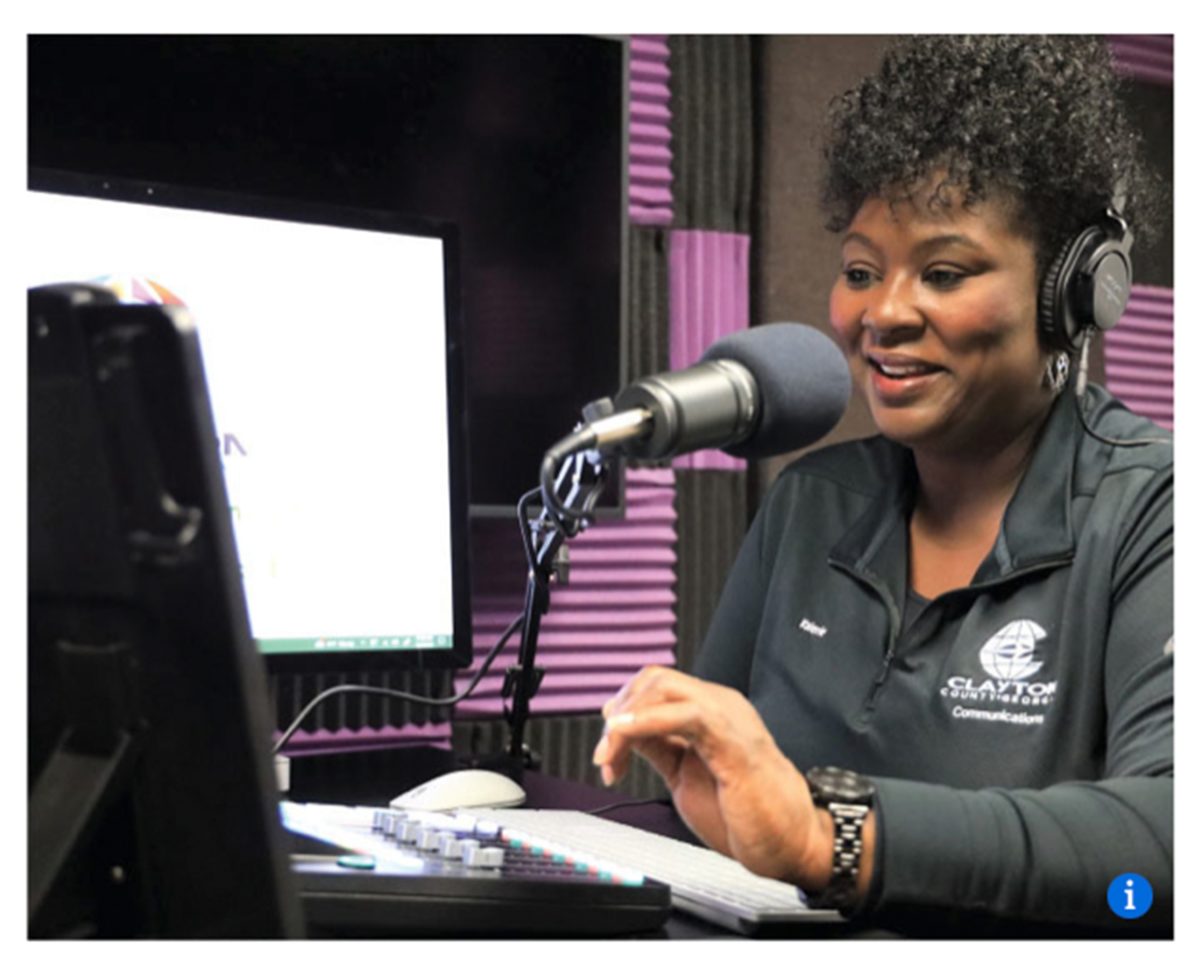
PODCASTING: MAKING YOUR COUNTY’S VOICE HEARD
Local broadcast radio was once among the top media for county governments to communicate with residents. While radio still has a place in a county communicator’s toolkit, podcasting—the streaming era’s update to the local radio model—is a fresher take on the old classic.
Podcasting is a proven medium with a history spanning almost two decades, but it represents a largely untapped area of opportunity for counties. A popular form of audio news and entertainment, podcasting attracts an increasingly diverse audience and promotes continuous engagement. Users of free or low-cost music and podcast streaming platforms subscribe to podcast shows that interest them and receive notifications when new episodes are released.
County government podcasts can range from very simple to more involved productions. In its most basic form, a county podcast can serve as a mechanism for streaming the audio from past public meetings, giving residents the choice to catch up on these meetings by listening to them on the go, versus attending live or watching a video. Walker County receives positive feedback from residents on its provision of a podcast with audio from public meetings. “Some of our residents say that the audio recording we provide is their preferred way of catching up on commission meetings,” says Legge. “They like to listen in the car, on a walk, or while making dinner.”
County government podcasts can also feature news stories, interviews, and commentary directly from county leaders and staff. Requiring less production than videos, podcasts are easier to create and are just as effective in humanizing the people that comprise local government. They allow counties to cut through the online clutter and connect with constituents firsthand. Listeners receive the news they need from the source and also get to hear the passion that county leaders bring to public service.
Clayton County launched the Clayton Connected Podcast in January, making it available across all the top podcast platforms, including Apple, Pandora, Spotify, and Stitcher. Communications Administrator Valerie Fuller hosts the podcast and oversees its content. She says much of the inspiration for podcast episodes come from citizens themselves: what they speak about when they step up to the podium at public meetings and what they say they’re interested in learning more about. Focal points for the new podcast will be the Clayton County Board of Commissioners strategic plan and its pillars, including Professional Growth Management, Fiscal Responsibility, Economic Growth, Communication & Image, and Quality of Life.
“We are constantly looking for ways to better engage and connect with our current and potential residents, businesses, communities, and partners,” says Chief Operations Officer Detrick Stanford. “Our Clayton Connected Podcast is another way to provide options for our diverse audience, improve our communications brand and image, while sharing important information, highlights, and facts. Anyone who desires can learn more about government operations, programs, services, events, and all the wonderful things to enjoy in Clayton County at their leisure.”
Podcasting is one more powerful channel for your county government to communicate directly with the public. The startup investment is low—all that’s needed to launch a show is a microphone, a computer, and an inexpensive streaming platform account. County professionals who are ahead of the curve on podcasting recommend getting started sooner than later, uploading new content consistently, and adjusting as you go based on feedback from listeners. With more and more Georgia counties planning to start a podcast this year, the time may be right to look into this option for your county’s communications.
BRAND CAMPAIGNS: SHOWCASING YOUR COUNTY’S HIGHLIGHTS
To the leaders of Lowndes County, the 120,000 people who call the south-central Georgia county home aren’t just residents—they’re brand ambassadors. Each one of these citizens shapes the story that is told about their community, a story that, in turn, affects economic growth, quality of life, and local government priorities.
Meghan Barwick, Lowndes County Public Information Officer and Rachel Thrasher, Lowndes County Community Development Director, are Lowndes natives with a lot of local pride. Both have chosen to stay in the county and raise their young families there, considering it a great place to live, work, and play. In their complementary roles in communications and development, Barwick and Thrasher have a front-row seat to the exciting things happening all over the community, including countless programs, services, events, and amenities. At the same time, they stay attuned to citizen sentiment and know that many residents just don’t know about all their community has to offer. Though they are the county’s most influential ambassadors, citizens are not always aware of what’s new and special in their community.
Says Thrasher, “From the county government to our cities, community partners, and residents, everyone is doing important things in our county, but we’ve built separate silos. We’ve all been working independently to try to get our messages out to citizens when we could instead get the word out in a single powerful voice. Meghan and I saw the need to create a unified community group and brand that raises awareness about everything going on in Lowndes County.”
To connect with the community and showcase the beauty and bustling activity in Lowndes, Barwick and Thrasher chose the highly visual AMsocial networking platform Instagram to serve as their launch pad. In August, Lowndes County launched an Instagram account, @lowndescountyga, driven by an eye-catching logo and brand campaign: “Go LoCo for Lowndes County.” The account focuses on promoting local events, businesses, and places to visit. It’s easy and sustainable to maintain, since Barwick and Thrasher source from other Instagram accounts and reshare the content. The approach is less government, more lifestyle, and it’s helping the county build its brand and connect with its stakeholders.
Barwick says the new GoLoco brand and the online community hub are taking off. The account has garnered over 1,000 followers, and shirts and stickers with the new GoLoco logo have been in high demand. The campaign will be carried into live events in addition to online and is already showing promise for building the kind of pride of place that can transform a community.
“The pictures we share are taken by the citizens of our county. While it instills a sense of pride for us, when we repost those photos, it creates a sense of pride for them, too,” says Thrasher.
INNOVATIVE EVENTS: ATTRACTING ATTENTION TO YOUR COUNTY’S MILESTONE MOMENTS
Situated in central Georgia, Macon-Bibb County is well-positioned geographically in the media market. Many news stations are just down the street from the city-county government operations in Macon, so it’s easy for journalists to report on events. Macon-Bibb County enjoys broad media coverage of its announcements, but the Communications Department, led by Chief Communications Officer Chris Floore, knows that to really get—and keep—citizens’ attention, county messaging needs to evolve with the trends and deliver more than expected.
Floore’s staff, including Public Relations Specialists Olivia Walter and Edna Ruiz, are experts in making county outreach more engaging, and Macon-Bibb’s leaders trust their lead and give them wide berth to be creative. The county’s events are no exception—they stand out by any standard.
While citizens might not ordinarily pay much attention to the groundbreaking ceremony for an airport runway expansion project or the grand opening of a fire training facility, they’re more likely to take notice if a stuntman parachutes into the airport press conference or the mayor and fire chief rappel from the fire training tower—things that really happened and made headlines in Macon-Bibb. Most recently, Mayor Miller and county commissioners dressed up as rock stars and arrived in a tour bus for the groundbreaking of the Macon Mall amphitheater to preview the excitement as bands arrive to perform at the venue in the future. County leaders had fun, and so did the gathered crowd. When planning any event or project, the Macon-Bibb County communications team develops a theme to fit the occasion and make the moment feel, well, momentous.
“We want to leave people with something more than shovels in dirt,” said Ruiz. “There are only so many typical groundbreakings or openings we can do and not be bored ourselves. If it’s not interesting to us, we know it won’t be interesting to the public. We’re lucky to work with a great administration that says ‘yes’ to our wild ideas.”
The wild ideas are paying off. In recent years, Macon-Bibb’s small communications team has earned more than two dozen prestigious awards from the City-County Communications and Marketing Association (3CMA), National Association of Government Communicators, PR News, and more. Most importantly, the team is delivering real value to citizens.
BEST PRACTICES FOR COUNTY COMMUNICATIONS
Communicating effectively with residents isn’t always an easy feat, but it couldn’t be more worthwhile. To enhance your county government communications across any medium, professionals across Georgia emphasize a few best practices:
Listen first. It almost goes without saying—before any county speaks, it should listen. “It’s important for us to listen to how our citizens want us to communicate, instead of us just telling them,” says Clayton County Communications Administrator Valerie Fuller. Counties can listen through citizen surveys, community meetings, online comments, and conversations. Listening is an ongoing discipline that leads to trust and a two-way dialogue—one that makes all the difference in ensuring that messages truly resonate.
Meet people where they are. Citizens aren’t all middle-aged or seniors, and they don’t think and act alike. Every county constituency contains diversity in age, cultural background, and content preferences. Rather than expecting residents to come to you, meet them where they are—whether scrolling on neighborhood platforms like Nextdoor, watching videos on TikTok, listening to podcasts in the car, reading email newsletters, or poring over the newspaper.
Keep it real. Local government can seem dull or faceless to citizens, but of course it’s far from it. To overcome this misconception and really connect with the public, put authenticity at the center of your communications strategy. When writing a press release about public safety pay raises, Macon-Bibb County Chief Communications Officer Chris Floore doesn’t just speak to county leaders—he interviews firefighters and police officers to find out what the raises mean to them personally. When a state-of-the-art facility opens, Floore and his team lean into the excitement with unexpected videos and events. It’s no coincidence that the counties across the state that are having the most success with public outreach are also often those whose county leaders and communications teams are having the most fun. Great community impact is sure to result when people are empowered to bring their full selves—and their most creative ideas—to work.
By embracing these lessons and experimenting with new communications tools and techniques, Georgia counties can connect with their communities and shine brighter than ever.
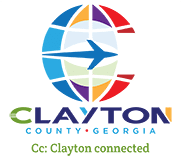
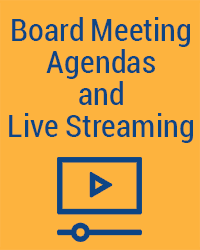
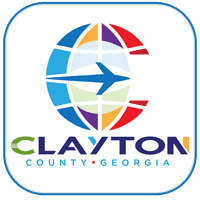 Click Clayton
Click Clayton